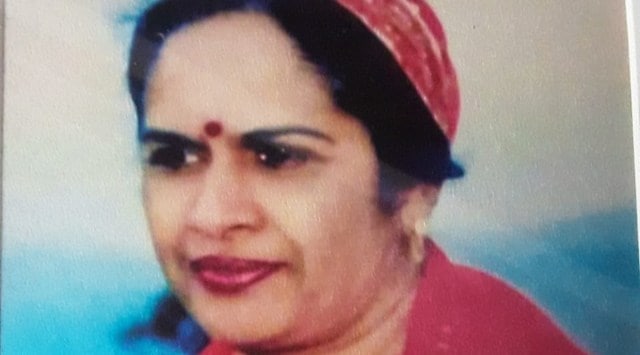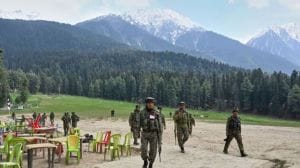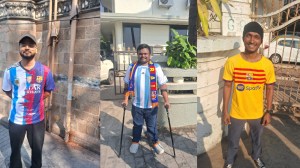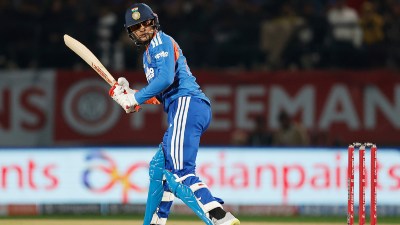Dance is an inborn talent for some; for others, it is a calling. That is how Padma Shri Rani Machaiah describes her journey as a folk dancer striving to popularise the folk dance of Coorg – Ummathat.
Performed by Kodava women, Ummathat is the traditional dance form of Coorg. Adorned in the traditional red brocade saree and jewellery, with vermilion on their foreheads, women dance in circles to the rhythm of hand-held brass cymbals. Accompanied by singing, the dance form – performed to appease Goddess Cauvery – is usually part of festivals, weddings and other occasions.

Machaiah, 80, who has been performing the folk dance for the past 60-odd years and has trained over 10,000 girls, is also known as ‘Ummathat ki Rani’. Recently conferred the Padma Shri, Machaiah never imagined she would become the torchbearer of a diminishing folk dance of Coorg.
It all began in the 1980s when Machaiah observed how the villagers in Madikeri performed Ummathat. She felt the movements were “very slow” and she adopted her own style of performing the folk dance with pacy movements. In addition, she only danced to the ‘talas’ (beats), without the involvement of any musical instruments. “I used to perform different dance forms when I was in school. However I started learning and performing Ummathat when I was 18 years old,” she says.
According to Machaiah, Ummathat originated when Kodava women used to collect the harvest from the fields. While returning from the fields, they would break into dance. This was mostly done ahead of the harvest festival Puthari, which is observed in Kodagu between September and November. The dance form begins with praying to the Goddess Cauvery (also a river that originates from Talakaveri in Coorg), singing about the Kodagu region, about life, and dancing to the ‘talas’. In fact, in addition to Ummathat, Kodavas also gather in huge numbers under a big banyan tree and perform other folk dances like ‘Bolakkat’, ‘Kathiyat’ and ‘Kolat’, as part of their tradition.
For five years, Machaiah consistently performed Ummathat at cultural events and programmes in Kodagu. However, she wanted to spread the traditional folk dance and the Kodava culture to other parts of Karnataka. “Slowly I started to take part in cultural programmes and events in other parts of Karnataka and got a chance to perform Ummathat in 17 districts of the state. But my major performance outside Karnataka was in the late 80s during Karnataka Utsava which was conducted in Goa,” says Machaiah, who pursued her BA in a government college in Kodagu, and later worked in a post office and as an LIC agent.
Machaiah trained many college students and even created a troupe to participate in various cultural events and programmes across Karnataka and outside the state. “Without anybody’s support, I took the sole responsibility to take the girls to perform Ummathat in various programmes across the country. We travelled to Punjab, Madhya Pradesh, Maharashtra, Tamil Nadu and Kerala. We also got an opportunity to perform Ummathat in Jammu and Kashmir,” says Machaiah, who used to take part in cultural exchange programmes organised by Nehru Yuva Kendra Sangathan.
Story continues below this ad
Machaiah recalls that the organisers of the cultural programmes had fixed an amount for the troupe’s expenditure when they travelled to different states. “We were given a fixed amount of Rs 400 for travel and Rs 600 each for our performance when we travelled to different states to perform,” she says. However, in 2019, her troupe earned Rs 6,000 each for their performance at Andaman and Nicobar Islands. Machaiah and her 15-member troupe also won the first prize in Ummathat during a competition at Delhi’s famous ‘Phool Waalon Ki Sair’ event.
Machaiah is also the founder of the Karnataka Kodava Sahitya Academy, which was formed to promote and advocate Kodava culture among students and people outside the region. The academy also aims to promote the Kodava language and literature.
Machaiah believes that Ummathat has not gained popularity because of the lack of courage among the performers to go outside the state and perform. “The only reason why folk dance is not popular is because the performers do not have the courage to go outside the state and perform. I am not sure why this happens. I call a lot of girls to tag along with me to perform and gain experience in other states, but they are just not ready to participate. They want to just perform in Kodagu,” she says.
Machaiah dedicates her Padma Shri to her students and their parents. “I somehow had the passion to take Ummathat beyond Kodagu and I think that is the reason I got the Padma award. But I see it as the 10,000 students and their parents getting this award. Without their support, I would not have got the award,” she says.
Story continues below this ad
Even at 80, there’s no stopping Machaiah. “Now I am planning to teach boys Ummathat. I believe that the Kodagu culture has to be exhibited through the folk dance even more, across all regions,” she says.









